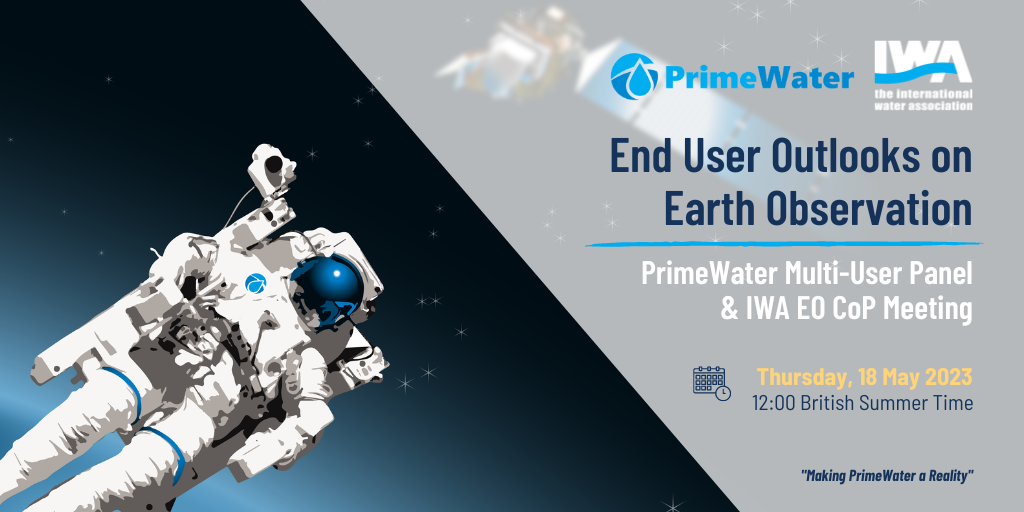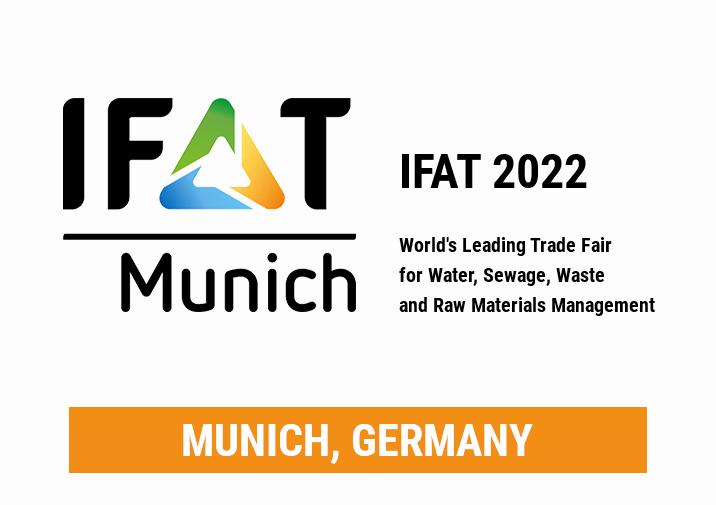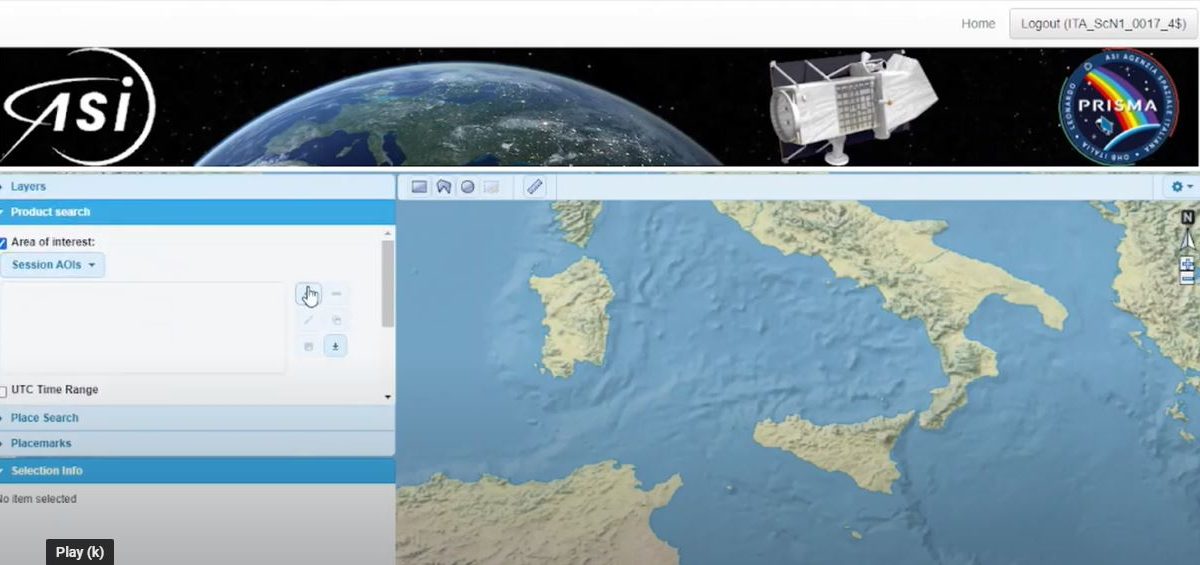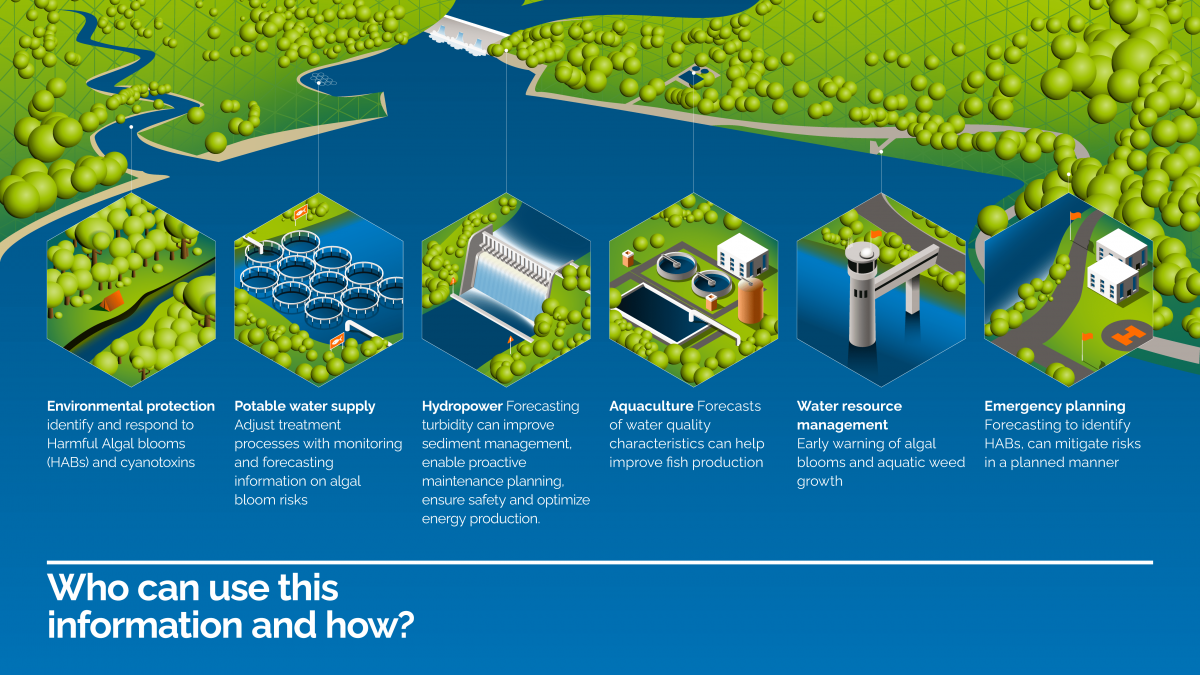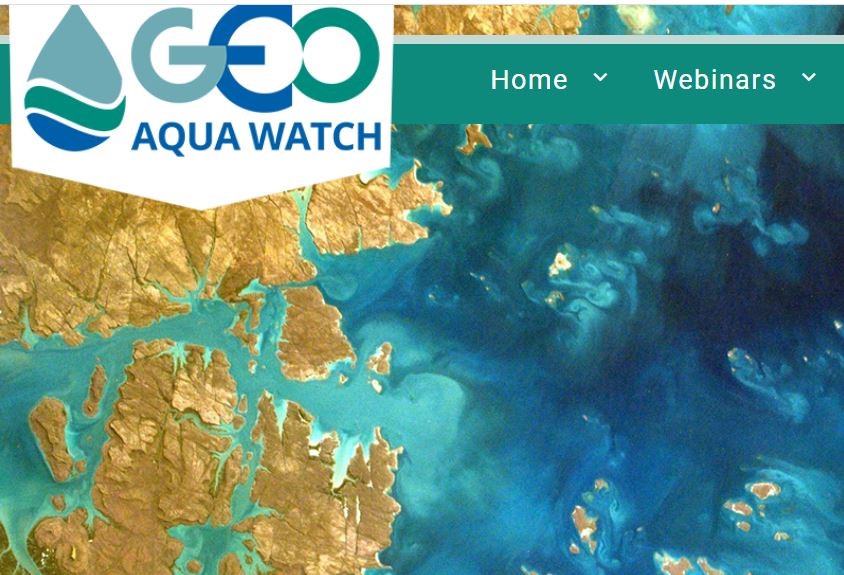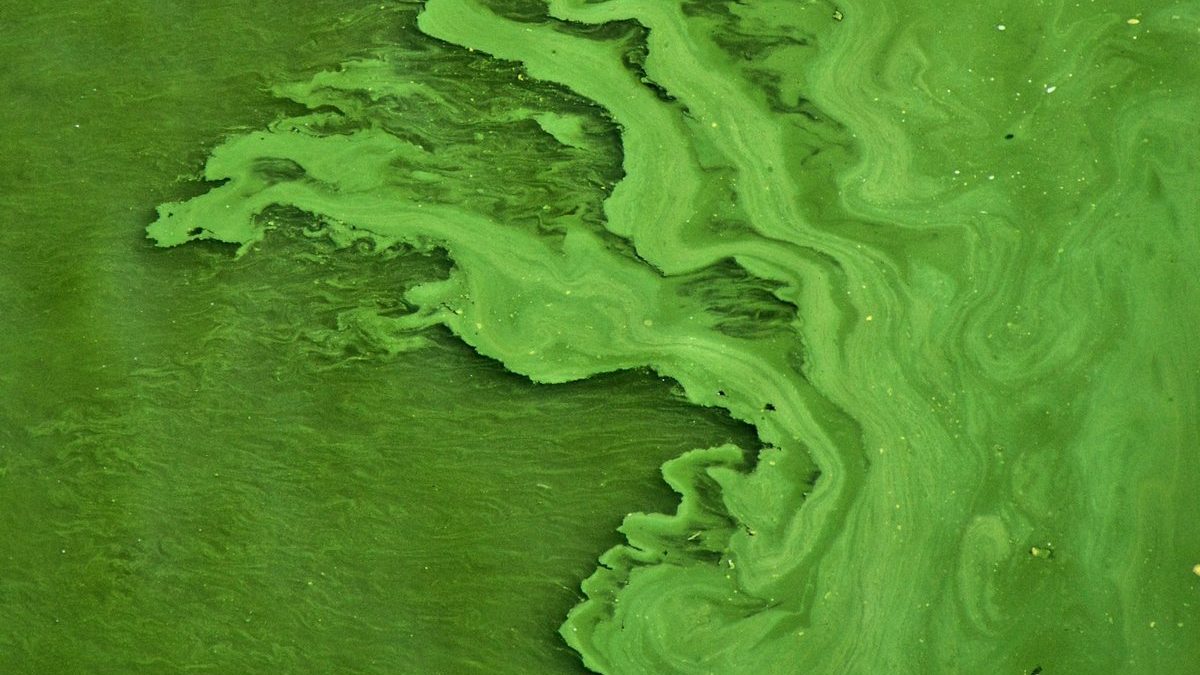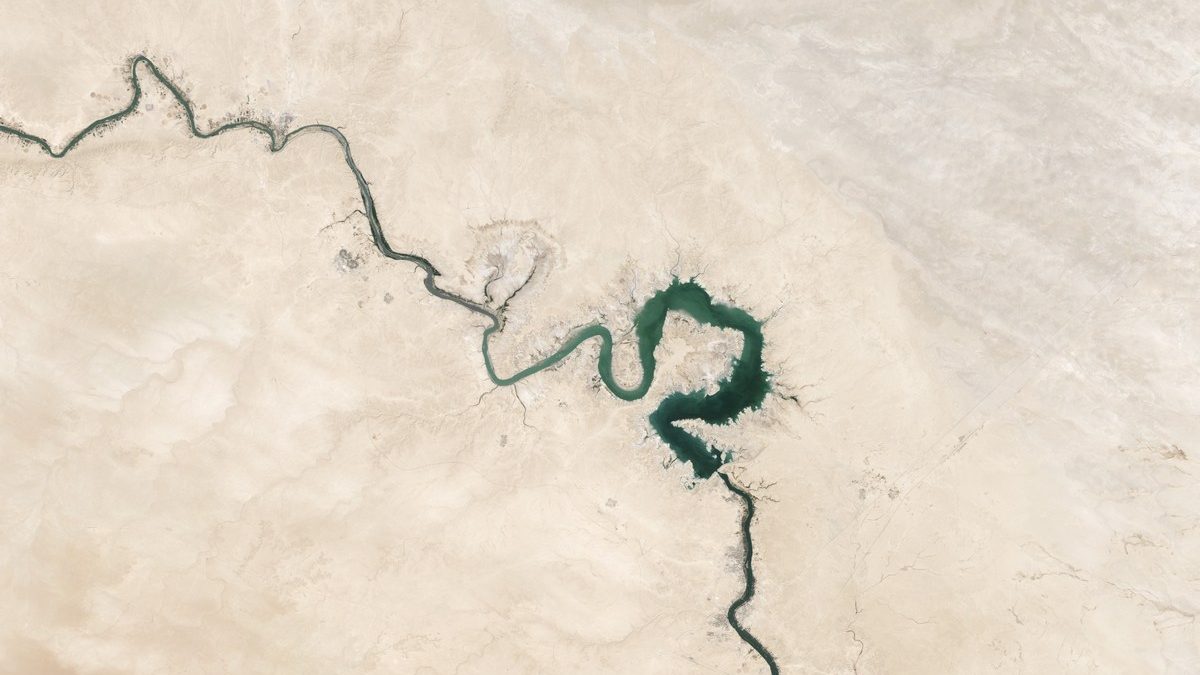‘End User Outlooks on Earth Observation’ webinar – Recording now available
It is now possible to watch the recording of the webinar “End User Outlooks on Earth Observation” organised on 18 May by the consortium of the EU Horizon 2020 PrimeWater Project in conjunction with the Earth Observation (EO) for Water Management Community of Practice, a subgroup of the IWA…
Meet us at the IWA World Water Congress & Exhibition in Copenhagen!
We are happy to inform you that PrimeWater will be at the 2022 IWA World Water Congress & Exhibition in Copenhagen, Denmark! During the 5-day event (11-15 Sept), PrimeWater consortium partners will present and showcase the project’s insights within the Congress programme.
PrimeWater at IFAT 2022
On Monday, 30th May 2022, PrimeWater will join the panel discussion on “Earth Observation Technologies for Improved Water Management organised by the International Water Association at IFAT 2022, Munich, Germany. This panel aims to present the state-of-the-art in terms of EO technologies in the water…
PrimeWater Virtual Lab – Experiments for students and early career researchers
To support the exploitation of space-borne imaging spectroscopy for aquatic applications, a series of videos for students/early career researchers have been prepared in the framework of the PrimeWater Virtual Lab. The videos describe the use of some tools for PRISMA and DESIS data pre-processing, for…
Learn more about funding space innovation!
The EU offers multiple opportunities for funding space innovation in a variety of domains. Companies who use Copernicus data for water management may take full advantage of these prospects thanks to broad policies. During this Water-ForCE webinar, current funding sources for Copernicus water applications will…
Determinants of the adoption of EO-based technologies for water quality monitoring and forecasting: An analysis of end users’ needs
GEO AquaWatch: advocating for the importance of sustained and routine water quality monitoring.
Water quality monitoring is the essential foundation of water resources management. Water quality data is needed to anticipate water quality changes, used for examining long-term trends, episodic events (spills), and understanding watershed/water body connections. Remote sensing is increasingly playing an important role in water quality…
Introduction of the ICT4Water cluster
The ICT4Water cluster is a hub for EU-funded research and innovation projects on ICT applied to water management. Member projects are both ongoing projects, such as PrimeWater, as well as completed projects that were members of the cluster before their completion. Currently, around 60 projects…
The PrimeWater Multi-User Panel has kicked-off!
The adoption of Earth Observation (EO)-based systems in Integrated Water Resources Management (IWRM) requires integration of different perspectives including ecological, financial and social. These are needed to shape how information from EO systems is packaged and then used to inform real-world decision-making. Co-development is a…
The Earth Observation Science Virtual Laboratories of PrimeWater
The Institute for the Electromagnetic Sensing of the Environment (IREA) of the National Research Council (CNR) is a research institute with also has a consolidate experience in the field of remote sensing. Within PrimeWater, CNR-IREA leads the Earth Observation (EO) Science Virtual Lab for advanced…
The algae bloom challenge to drinking water
When we turn on the tap, the water coming out has usually gone through a number of steps to be considered safe for consumption. This of course can depend on where you live in the world. Nonetheless, drinking water suppliers aim to take a raw…
Understanding Earth Observations
“Monitoring the status of our freshwater lakes and rivers has never been more important. Regular observation is essential to determine their health, quickly identify trends and acknowledge signs of degradation particularly for areas in scarce supply.” The 1968 Earthrise photograph, a photograph of the Earth and parts…


